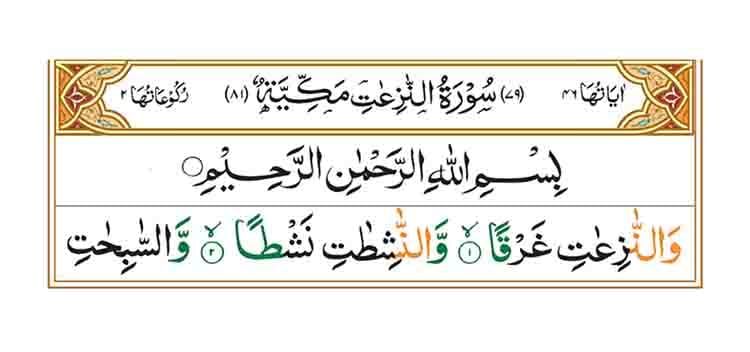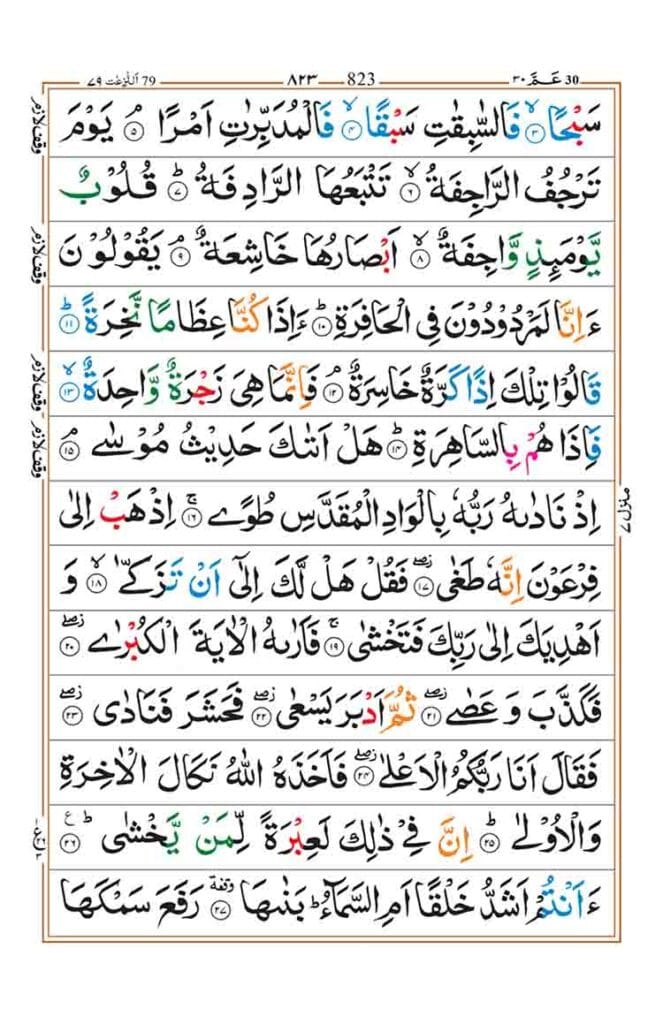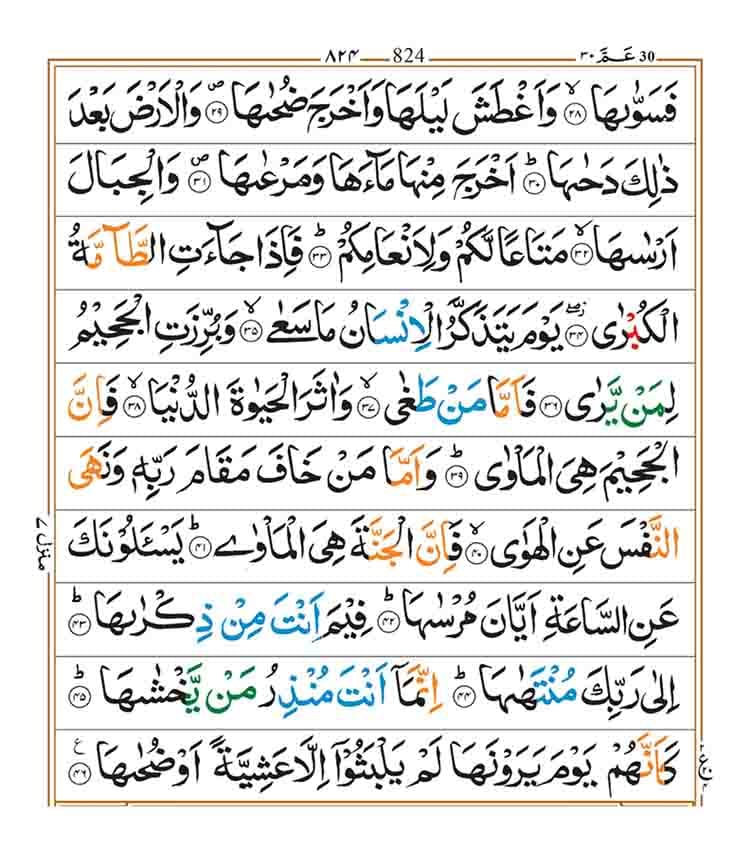Surah An Naziat
Surah An-Nazi’at opens with a series of oaths describing angels who carry out divine commands: removing souls, gliding swiftly, and administering Allah’s will. These verses build up to the theme of resurrection, asserting that it will happen, despite the disbelievers’ doubts.
The Surah gives a historical example: Pharaoh’s arrogance and punishment, highlighting the consequences of rejecting divine truth. It closes with a powerful depiction of the Day of Judgment, describing it as a day of terror, where every soul will know what it brought forth.
Surah An Naziat Overview
| Surah An Naziat Ayats | Surah An Naziat Words | Surah An Naziat Letter | Surah An Naziat Ruku |
| 46 | 179 | 797 | 2 |
Listen Surah An Naziat Online
Colour Coded Tajweed Rules

Read Surah An Naziat Online



Meaning & Importance of Surah An Naziat
The name “An-Nazi’at” refers to the angels tasked with taking souls, and the Surah uses this imagery to begin a discussion about life after death. It tackles key questions the disbelievers raised about the Hereafter:
Will we be resurrected after we’ve turned to dust?
Is there life after death?
What is the purpose of judgment?
The Surah reminds readers that denial of the Hereafter is irrational, especially when they can observe signs of Allah’s power in creation, and when past nations (like Pharaoh’s) were destroyed due to arrogance.
Virtues & Benefits of Surah An Naziat
Reinforces belief in resurrection and the Day of Judgment.
Offers a warning against arrogance and worldly pride, as seen in the story of Pharaoh.
Inspires believers to be accountable and conscious of their deeds.
Describes the powerful roles of angels, strengthening awe of Allah’s command.
A highly effective Surah for building conviction in the Hereafter.
“But as for he who feared standing before his Lord and restrained himself from [evil] desires, then indeed, Paradise will be [his] refuge.”
(Surah An-Nazi’at, 79:40–41)
These verses remind us that self-control, humility, and God-consciousness are the keys to Paradise.
Surah An-Nazi’at is a reminder that no soul escapes accountability. It presents the Hereafter not as a possibility, but as a certain event, urging listeners to submit, reflect, and reform before it arrives.
Read More Surahs
Surah Yaseen | Surah Maryam | Surah Yusuf |
Surah Waqiah | Surah Kahf | Surah Rahman |
Surah Juma | Surah Muzammil | Surah Falaq |
